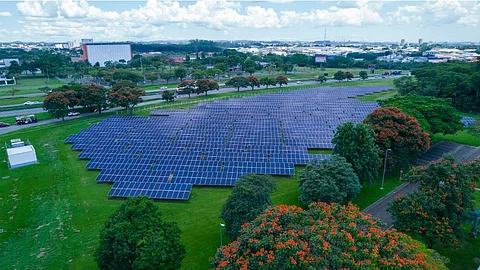

ABSOLAR says Brazil’s total installed solar PV capacity has exceeded 52 GW mark
It represents BRL 229.7 billion in cumulative investment in the industry since 2012
ANEEL says solar was the largest contributor to the country’s 10.8 GW new power generation capacity addition in 2024
Brazil’s cumulative installed solar PV capacity has surpassed the 50 GW milestone to over 52 GW and represents almost 21% of the country’s installed power generation mix, according to the local solar PV association ABSOLAR. It says Brazil is now the 6th country to reach this level after China, the US, Germany, India and Japan.
According to the association, solar energy has generated investments of BRL 229.7 billion ($38 billion) in the country since 2012 and contributed BRL 71 billion ($11.75 billion) to the public coffers.
At the end of November 2024, ABSOLAR had pegged the country’s total solar PV capacity at 50.6 GW, split into 16.64 GW of centralized solar power generation and 34.03 GW of distributed generation. Since ABSOLAR counted the cumulative capacity as having exceeded 35 GW at the end of 2023, the country would have grown by around 16 GW or 17 GW in 2024 (see Brazil’s Operational Solar PV Capacity Exceeds 35 GW).
According to Brazil’s National Electric Energy Agency (ANEEL), the country installed 10.8 GW of new power generation capacity in 2024. Out of 301 new power plants installed in 16 states, 51.87% came from solar PV and 39.26% from wind energy projects.
Specifically, 147 solar PV plants contributed with 5.629 GW, 121 wind plants with 4.26 GW, and 22 thermal projects with 906 MW capacity. The remaining capacity came from 9 small hydroelectric plants representing a combined 51.8 MW and 2 hydropower plants with 4.6 MW capacity, shows ANEEL’s data.
Going forward, ANEEL says the Brazilian solar market is likely to see the impact of the government’s Gecex Resolution No. 666 under which the import duty on PV modules increased from 9.6% earlier to 25%. This has been done to promote local competence in the field while bringing down dependence on imported products.
However, ABSOLAR told O Debate that the duty increase has made solar modules expensive to import and that this will discourage investments in the country’s solar energy market.
